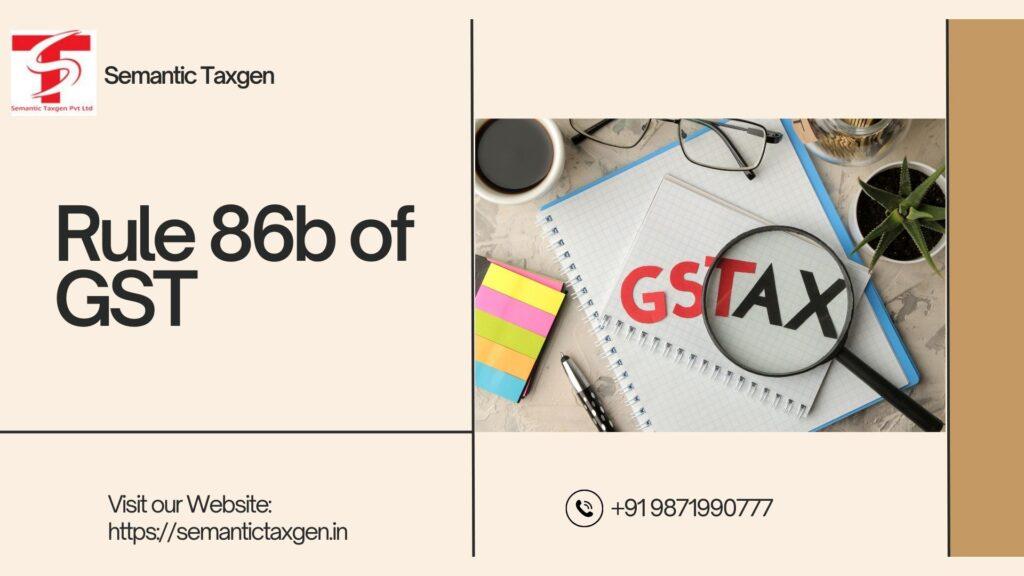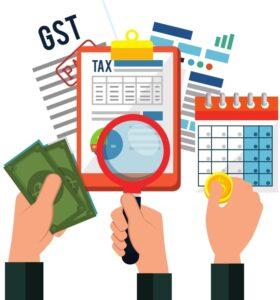
New rule 86B, vide notification number 94/2020 dated December 22, 2020, has been introduced by the Central Board of Indirect Taxes and Customs (CBIC). Rule 86B is which is effective from 1st January 2021.

GST Rule 86B is attached with a non-obstante clause. This rule is overrides all other rules of GST, which are from the date of its enforcement, i.e., 1st January 2021. This rule is applied under the following conditions:
There are restrictions imposed on 86b gst rule notification as follows:
Input Tax Credits, or ITC, is a most important part of the GST filing process and has saved business persons from taxation’s cascading effect. This credit, which was stored in the electronic credit ledgers, has been used by the business for the payment of outward tax liability. Earlier, businesses were able to utilize ITC for the payment of taxes fully. Ever since Rule 86B came into effect, the usage of ITC balance towards the payment of output tax liability has been limited, and this needs to be kept in mind while planning the taxes.
√Any person mentioned in the list below who is paying an annual income tax of more than INR one lakh rupees under the IT Act of 1961 is exempted from this rule.
√If a registered person who has received a refund of INR one lakh or more in the last financial year, this refund of unused ITC received towards export under the letter of undertaking or because of an inverted tax structure will not be accounted for under 86B GST Rule.
√When a registered person in question has paid his outward tax liability using the electronic cash ledger of an amount that is more than percent collectively of the entire outward tax liability on the person in the given month in a given financial year.
√The person is exempt from any tax if they hold any of the following offices:
To Receive or Inquire about the NGO Taxation services check out our website: https://ngopilot.in/
DISCLAIMER: The information provided in this article is intended for general informational purposes only and is based on the latest guidelines and regulations. While we strive to ensure the accuracy and completeness of the information, it may not reflect the most current legal or regulatory changes. Taxpayers are advised to consult with a qualified tax professional or you may contact to our tax advisor team through call +91-9871990777 or info@semantictaxgen.in the appropriate government authority to verify the accuracy of the information and to obtain advice on their specific tax situations.
© 2013-25 Semantic Taxgen Pvt Ltd - All Rights Reserved